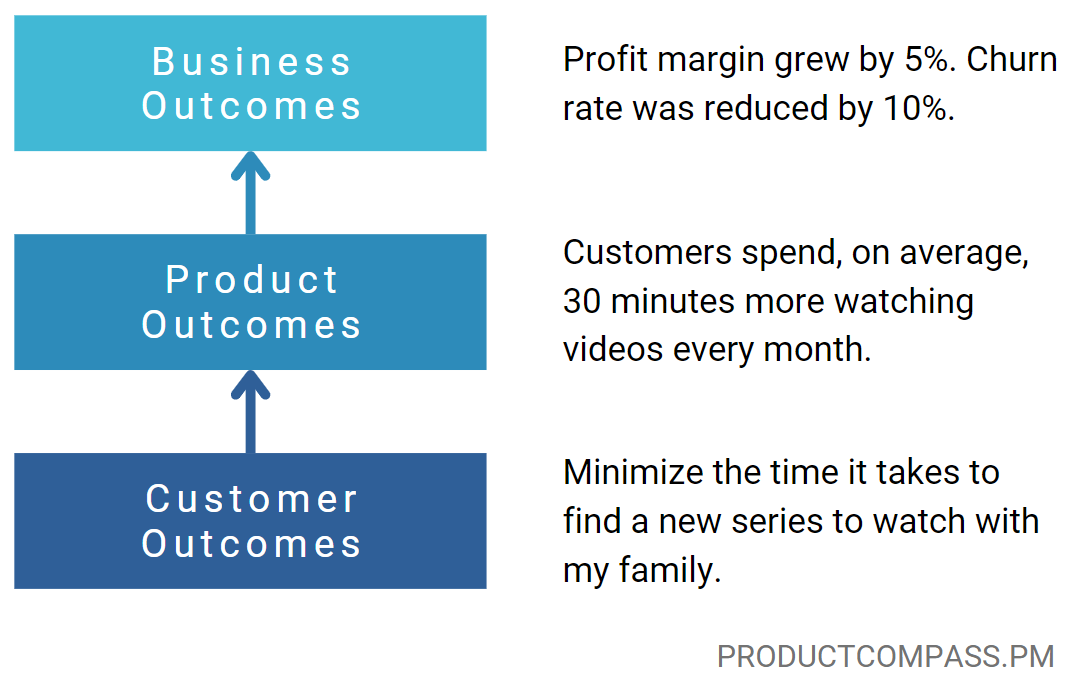Business Outcomes vs Product Outcomes vs Customer Outcomes
“Outcomes over output” is essential for any PM. But there is no single definition of outcomes.
Let’s simplify this. There are three types of outcomes every PM needs to know:
1. Business Outcomes
Business outcomes refer to the metrics related to the organization’s goals:
increase revenue
lower costs
grow market share
grow profit margin
reduce churn rate
Business …
Keep reading with a 7-day free trial
Subscribe to The Product Compass to keep reading this post and get 7 days of free access to the full post archives.



